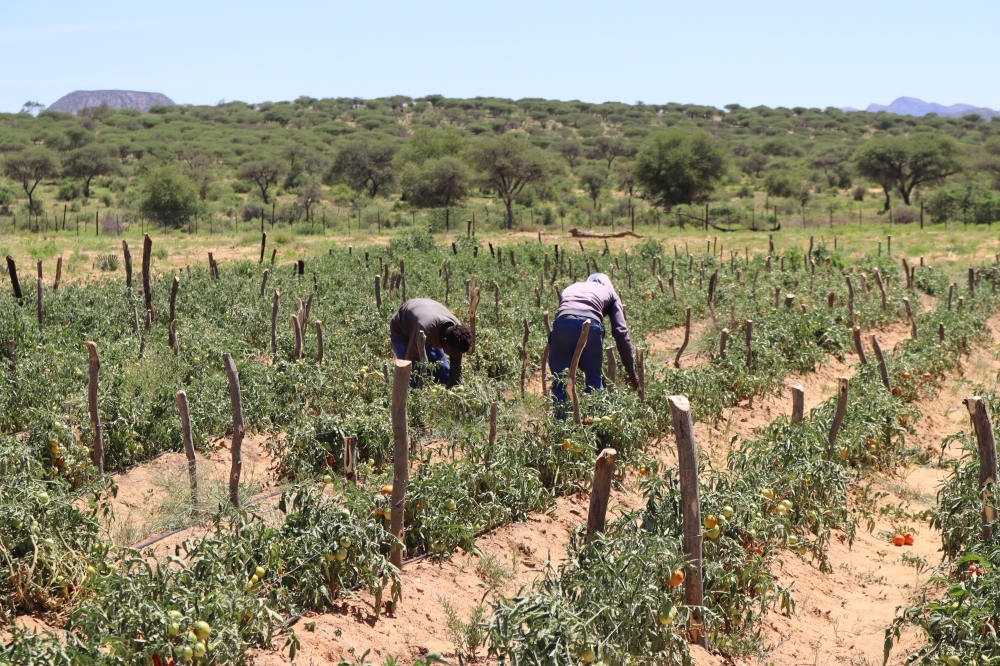Water shortage cripples Groot Aub farmers
Farmers desperate for help
Rural and urban development minister Erastus Uutoni paid a visit to Groot Aub farmer Oskar Elago's farm this week after the latter begged for assistance with boreholes.Uutoni was joined by agriculture minister Calle Schlettwein and Khomas governor Laura McLeod-Katjirua.
According to Elago, due to water shortages, he has lost 20 000 chickens and 12 000 layers over the last two years.
His chickens produced 10 800 eggs daily.
"I have been sent from pillar to post when asking for approval to drill in this area. The City of Windhoek told me straight to my face that the farmers aren't their problem and their priority is the residents, who too don't have water," Elago said to the agriculture minister.
Other farmers shared Elago's grief for livestock losses and said the City of Windhoek uses possible water contamination from animal excrement as an excuse to not permit farmers to drill for water on their farms.
Questions need answers
Elago started farming after resigning from his position at the Namibia University of Science and Technology (NUST), where he lectured in food science and technology, chemistry, and an introduction to biology in the Department of Agriculture in 2012.
He obtained his master's degree in plant sciences, with his thesis centred around the influence of heat and cold stress on gluten protein and starch in wheat.
"How is it possible for the animal manure at one farm to affect the water, 50 metres down, at another farm? The City of Windhoek is not seen or heard of in Groot Aub; this is the first time that they've shown up," he said.
Action to be taken
The municipality's chief engineer, Sebastian Husselmann, said over the years, the water table in the Groot Aub area has become lower.
"There's an issue that is not being addressed: the issue of pollution of the underground water. Samples have been taken over months, and we realised that the water has started to become contaminated by the manure produced on the farm. There are letters from the city's pollution department to Oskar Elago to first deal with the pollution before he can be allowed to drill for water," he said.
Schlettwein argued that if the water is indeed contaminated, rehabilitating the water and the existing boreholes will be meaningless.
''If the water has any traces of nitrogen, people and animals will die. People also eat. Try to only do water or only food. We have to combine both the water consumption for animals and that of the residents," Schlettwein said.
The rural and urban development minister said the two ministries with relevant stakeholders will take action and make sure the problem is fixed immediately.
"We want to assess the situation. You [Groot Aub] have a big population that needs water. Should we sit idle while our people die of thirst? We will not allow that. So the agriculture ministry, with the technical teams, will come together for this problem," he said.




